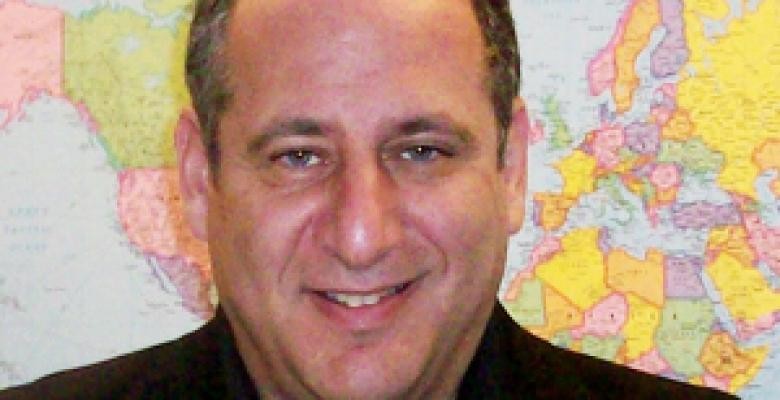Peace-building Program Seeks to Heal Wounds of War

David L. Phillips believes violent conflict is not inevitable. As director of Columbia’s Program on Peace-building and Rights, Phillips’s office is on the Morningside campus, but his real work takes place in trouble spots across the globe.
A one-time senior adviser to the United Nations and U.S. State Department, Phillips spends his time meeting with experts, organizations and government officials to build bridges between civil society and governments.
“The goal is creating conditions for sustainable peace by empowering local partners—agents for reform in their countries,” explained Phillips. “Since civilians—largely women and children—are those affected, they must have a voice.”
In Darfur, Phillips helped a group of local leaders set up their own NGOs after Sudan’s devastating genocide. Darfuri groups working with Phillips focus on education, others on rights for the physically disabled and still others on rural economic development, all while transcending tribal and regional differences.
In concert with Sri Lanka’s Ministry of Education, he developed a program for college freshmen that focuses on social harmony and conflict resolution. He has also been working with the National Peace Council of Sri Lanka as that nation recovers from its long civil war that ended in 2009. In December, Phillips convened influential Armenians and Turks in Yerevan, Armenia's capital, to strengthen business and other cross-border partnerships.
On his way home from Armenia, he stopped in Macedonia for a dinner with President Gjorge Ivanov to discuss plans for an international mediation center in that country to host representatives from countries in conflict. Macedonia is a fitting location, given its 2001 conflict between ethnic Albanians and Macedonians and subsequent experience working to implement a 10-year power-sharing agreement between the former foes.
Praise for Phillips’ work comes from all sectors, including the State Department, which draws on his expertise. “David Phillips is one of the leading scholar-practitioners on peace-building and reconciliation,” said Alyssa Ayres, deputy assistant secretary for South and Central Asia at the State Department. “We have appreciated his insights and analysis on Sri Lanka based on his extensive experience around the world.”
Elazar Barkan, professor of international and public affairs at Columbia and director of SIPA’s human rights concentration, said Phillips’ program is unique. “Human rights work is usually more about naming and shaming,” he said. “We are engaging in education, research and involvement with the real world. I don’t know of any program that actually engages peace-building from this perspective.”
Phillips, whose family came from Eastern Europe as refugees, was influenced by his studies at Amherst College with Robert Thurman, now Columbia’s Jey Tsong Kappa Professor of Indo-Tibetan Studies. There Phillips was exposed to centuries old Buddhist literature about the importance of humanitarian work. Thurman and Phillips have remained friends. These days the teacher is learning from his former student’s research on autonomy models as a way to preserve and protect Tibetan culture, which Phillips has presented to the Chinese government.
“He is a visionary in his refusal to admit that these struggles are eternal,” Thurman said. “He does not accept the conventional ideas that some things are just hopeless.”
Phillips would agree. “The only limitation is your imagination and the amount of energy you have to serve the greater good,” he said. “If we don’t learn from the tragedies in the 20th century—which was the bloodiest in human history—we’re going to repeat them.”
Among his supporters is one of the world’s most influential advocates for peace. “When I asked the Dalai Lama for a mantra,” Phillips said with a smile, “he said, 'David, your mantra is, ‘Go go go go!’” But Phillips said he does not meditate. “Too busy.”